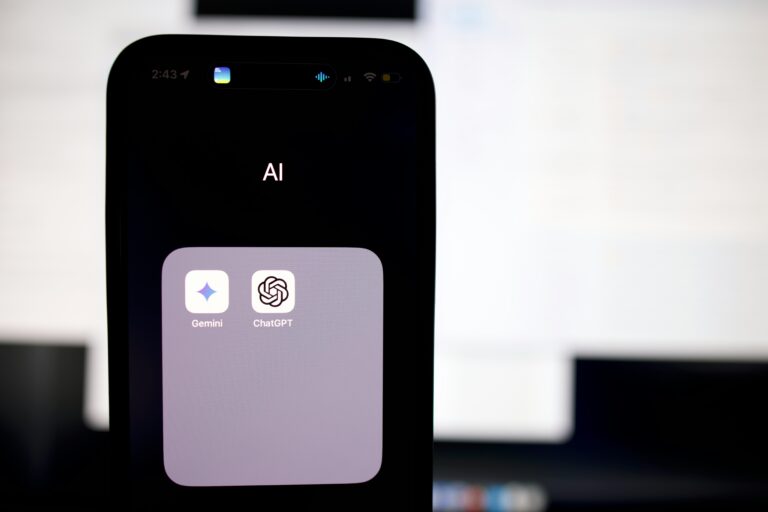Innovation is at the heart of success no matter the industry or endeavor. However, creating a safe space for innovation in education can be difficult due to multiple factors including limited resources, timeline constraints, and scalability issues. Fortunately, finding a solution to these challenges can start simply – by investing within – as the team at Teaching Lab knows well. A provider of educator coaching and professional learning, Teaching Lab recently launched an innovation studio to fund forward-looking ideas, tools and platforms that push education forward. In a Q & A with 5 Questions, Teaching Lab CEO Sarah Johnson discusses the organization’s new strategic initiative and what it means for the education space.
What Is The New Teaching Lab Studio?

The Coherence Innovation Studio is a new unit of Teaching Lab, a leading provider of educator coaching and professional learning across the United States. We created the Studio to incubate and help scale high-impact ideas made possible by the dramatic progress in generative AI.
We believe that AI-enabled supports and tools can unlock the potential of both educators and learners in ways that haven’t been imagined, especially for those furthest from opportunity. In addition to acquiring the Writing Pathways Initiative and Podsie, we recently launched an AI in Education Fellowship, which attracted nearly 800 applicants.
Why Is It Important?
Coming out of the pandemic, we are seeing very alarming statistics in the nation’s K-12 context in terms of student performance and teacher burnout. We believe that greater instructional coherence is needed to help reverse these trends. We define instructional coherence as the alignment and synergy across processes, products and tools that guide the daily choices of teachers and students.
Given pressures to increase individual tech adoption, it is often the case that tools and curriculum are built or implemented in silos, leading to redundancies and surface-level impacts. We believe that focused efforts to improve instructional coherence can not only unlock greater efficiencies across tools but also shift teaching practices to improve student learning in a fundamental way. Amid the recent accessibility and potential of genAI, one of our big bets is that this technology can dramatically improve instructional coherence.
However, we’ve often found that promising uses of AI in education prematurely abandon pedagogical best practices, leading to incoherence at the expense of user adoption. We don’t believe this trade-off has to be made. That’s why we are committing resources to our Studio to enable thoughtful discovery, design, testing, and scaling of AI-enabled solutions that are efficacious and can be used widely.
With generative AI, we can invite educators to meet us at the ground level, literally engaging in experiments alongside our product teams. In practice, this means working with teachers to create prompts, seeing results, and making adjustments, all in real-time. Co-creating in this rapid way has dramatically reduced the time it takes to know what works and opens the door for much deeper discovery conversations.
What's Been the Biggest Surprise So Far?
From ongoing user testing and conversations with teachers, we have noticed how seamless it can be to truly co-create solutions with teachers, who are closest to the work. The traditional approach to product development has been to gather feedback, create the tool, get more feedback, and then return to building.
With generative AI, we can invite educators to meet us at the ground level, literally engaging in experiments alongside our product teams. In practice, this means working with teachers to create prompts, seeing results, and making adjustments, all in real-time. Co-creating in this rapid way has dramatically reduced the time it takes to know what works and opens the door for much deeper discovery conversations.
We still need powerful UX and the training to reduce friction when interacting with AI; but we believe we can solve that. The ability for current and former educators to use AI and immediately see results has helped level the playing field for those who want to innovate but may not have had the technical expertise or resources to do so. We believe this might also explain the massive volume of job applications we’ve received, many of whom are teachers, to join Teaching Lab in the Studio’s pursuit of technological innovation.
Where Do You See The Studio In 5 Years?
We hope to see evidence of our ideas dramatically shifting practice and improving student outcomes through their implementation. If this happens, then we can set a standard for a venture incubation model currently absent in the education sector. Our hypothesis is that strategic wrap-around support, a commitment to resourcing, and our targeted focus on instructional coherence using AI are essential inputs to sustainable impact at-scale.
We can set a standard for a venture incubation model currently absent in the education sector.
What Else Should People Know?
This year, we will launch our inaugural cohort of four Fellows who will have the runway and support to innovate around AI in classrooms according to our six theses. We are looking for team members, advisors, and possibly other roles at Teaching Lab as we grow. Check out some of our AI tools here and here. Anyone who is interested in learning more, is invited to reach out to my colleague, Managing Director for Innovation Yefei Jin, at yefei.jin@teachinglab.org.




